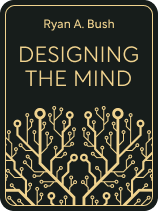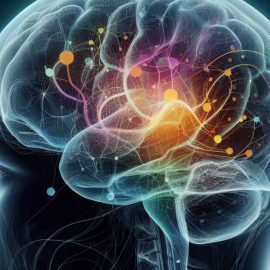

This article is an excerpt from the Shortform book guide to "Designing the Mind" by Designing the Mind and Ryan A Bush. Shortform has the world's best summaries and analyses of books you should be reading.
Like this article? Sign up for a free trial here.
Do you sometimes feel emotions you cannot explain? Where do emotions come from?
Emotions sometimes get the better of us, but we can learn to tame them and respond to emotional situations more rationally and effectively. To do that, we have to first understand what gives rise to our emotions.
Keep reading to learn where our emotional responses come from and how to deal with unexpected emotions.
How Emotions Form
Where do emotions come from? Emotions, more than anything else, drive us to act. If you have a poor emotional reaction to a situation, then your behavioral response will likely do more harm than good.
To begin controlling your emotions, you have to first understand how they form. Your rational thought processes mediate your emotional responses: Instead of responding with an emotion directly after you experience a stimulus (like an interaction with another person or a piece of news you receive), there’s a thought pattern in between the two that determines how you feel about the stimulus. Usually, if you judge that the outcome of the stimulus is desirable, you’ll experience positive emotions. If you judge that the outcome isn’t what you wanted, you’ll experience negative emotions.
How to Identify the Source of Unexpected Emotions
Bush argues that emotions always stem from our thoughts, but what about situations when we feel an emotion and can’t pinpoint any thoughts or triggers that could’ve caused it? Sometimes, our brains trigger emotions unconsciously. Neurological studies show that the human brain picks up on a lot of information in our environment without our conscious awareness, meaning that we may unconsciously notice things that then inspire confusing emotional responses.
If you experience an emotion and can’t figure out where it came from, ask yourself the following questions:
– Were the preceding events surprising or gratifying?
– Will what happened stand in the way of what I want, or will it help me achieve it?
– How much control do I have over what happens next?
– Do the events align with my belief in what’s right and what’s wrong?
– Were the preceding events my fault or someone else’s?
Studies show that thought patterns that prompt strong emotions typically answer these types of questions. As Bush asserts, if your answers to these questions work in your favor, you’ll probably experience positive emotions. If not, you’ll experience negative feelings.

———End of Preview———
Like what you just read? Read the rest of the world's best book summary and analysis of Designing the Mind and Ryan A Bush's "Designing the Mind" at Shortform.
Here's what you'll find in our full Designing the Mind summary:
- How the mind can be reprogrammed like a computer
- Strategies to help you change negative thought patterns, emotions, and behaviors
- How to eliminate your biases to perceive reality more accurately






